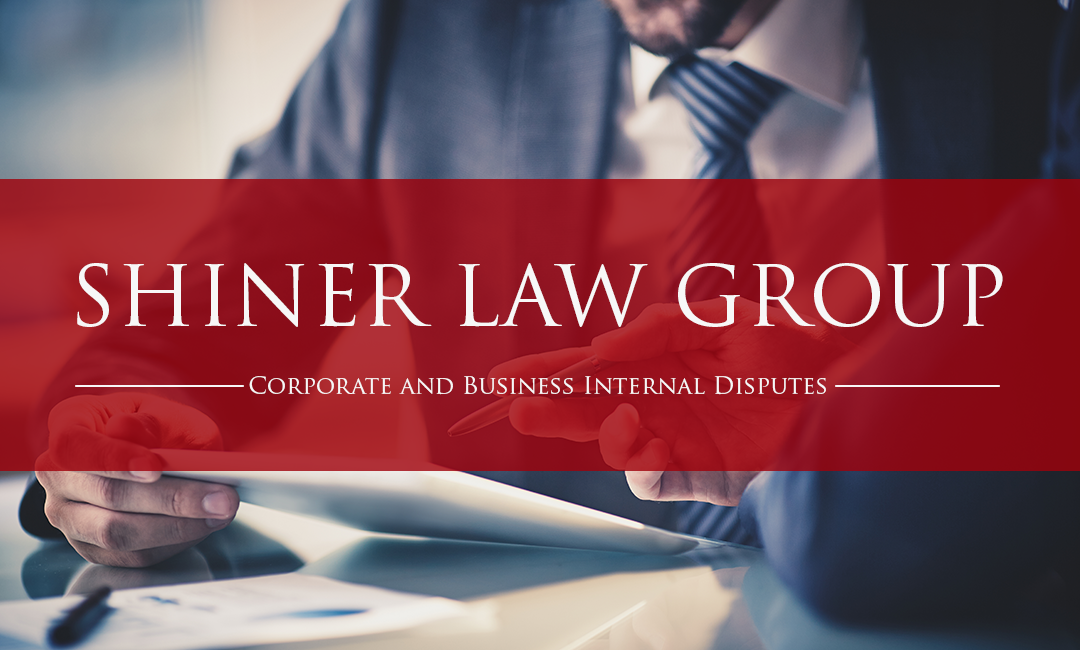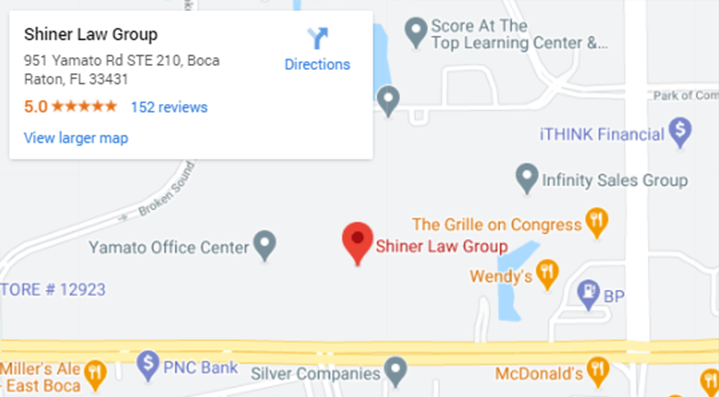Corporate and Business Internal Disputes
Business disputes not only include external disputes such as between a business and another business or client, but they may also occur internally between partners, power brokers and shareholders. Internal business disputes can lead to dire consequences and diminish a company’s functioning. Therefore, they must be handled tactfully with the guidance of an experienced lawyer.
Here are the top reasons why corporate and business internal disputes take place:

Mismanagement of Funds
Mismanagement of funds is when a person fails to follow the guidelines or observe laws when handling finances for an organization. Majority of the mismanagement lawsuits are a result of negligence of the liable party. Mismanagement of funds is a primary reason for many internal business disputes. Some examples of corporate mismanagement of funds include the following:
- Mixing business and personal accounts
- Divulging the company’s confidential financial information to an outsider
- Using business funds for personal use
- Fiduciary duty violation
- Violations of trust and business laws
Who Can be Held Accountable?
Broadly speaking, the following can be held accountable for the mismanagement of funds:
- Trustees
- Members of board of directors
- People holding organizational office positions like a treasurer
- People authorized to make financial decisions
Shareholder Derivative Actions
Once an individual purchases a corporation’s stocks, they will become the owner of the company. The members of the board of directors and other appointed executive officers run the daily company operations, they eventually serve the shareholders. However, a shareholder may exercise shareholder derivative action if they believe that someone has harmed the company and breached their duties. Such a lawsuit is filed by the shareholder against the alleged party.
These lawsuits are particularly brought against advisers, accountants, officers or directors of the corporation. A shareholder plaintiff can pursue claims on behalf of a corporation, and benefits indirectly as a shareholder from any corporate governance reforms or monetary recovery obtained for the corporation.
Involuntary Dissolution
Sometimes, business internal disputes can result in involuntary dissolution. This is a judicial process where the court separates the warring partners by forcing a sale of business ownership from one to the other. This remedy is used when all else fails to resolve a dispute between corporation owners.
A business may experience involuntary dissolution in the event of a serious disagreement with shareholders. Furthermore, it may also be a result of failure to file reports with the state, bankruptcy, or failure to pay taxes.
Then the corporation may be ordered by the court of the common pleas to protect the investments of shareholders. This usually happens in these three conditions:
- The company’s director engages in fraudulent or illegal activities,
- The company’s assets are wasted or spent unwisely,
- There happens to be a deadlock between the company directors regarding a serious decision.
When the deadlock between the company’s shareholders and directors cannot be resolved then involuntary dissolution is the last step. This is where the court then forces a sale of ownership as mentioned above. Also, it can be the sale of the entire business too. If this is a possibility then you’ll have to check your buy and sell agreement to address how the dispute should be handled.
If the case is taken to the court and the judge orders the dissolution of the company, then the assets shall be liquidated as per the rules of the court. The company can be sold in parts or as one business entirely. Furthermore, it may also award buy out rights.
Mismanagement of Investments
Another top reason for internal business disputes is the mismanagement of investments by accountants and investment managers. Many company investments are made as a group of investments with multiple client assets. And so managers usually have access to all accounts of the company. This also increases the risk of fraud. Also, fraud can be difficult to detect because many managers have access to company accounts.
As a fiduciary or trustee has a responsibility under the law to manage trusts and investment accounts, mismanagement of such accounts can result in huge financial losses and complex legal disputes. In such a situation, trustees and investment managers should be held accountable for their mismanagement.
Legal Remedies for Business Internal Disputes
As business internal disputes can arise at any time and due to any reason, it is important that you consider legal assistance instead of dealing with it on your own. For example, legal remedies for the mismanagement of funds aims to be proportionate to the type of conduct involved. Most often, a common remedy in this regard would be the payment of damages for financial losses incurred in connection to the mismanagement of funds or investments. However, other remedies could be replacing the person responsible for mismanaging the funds or investments.
Regardless of the nature of a business internal dispute, it can most certainly present you with many challenges. Therefore, it makes sense to hire an experienced lawyer who can provide you with quality legal assistance and comprehensive guidance on how to file and handle a lawsuit. And this is what we are best known for.
At Shiner Legal Group Business & Commercial Lawyers, we have a wealth of experience and expertise in this area. We can represent you with zeal and professionalism, and more importantly make sure that your rights are protected.
For more information about business disputes or legal assistance, contact us today.









